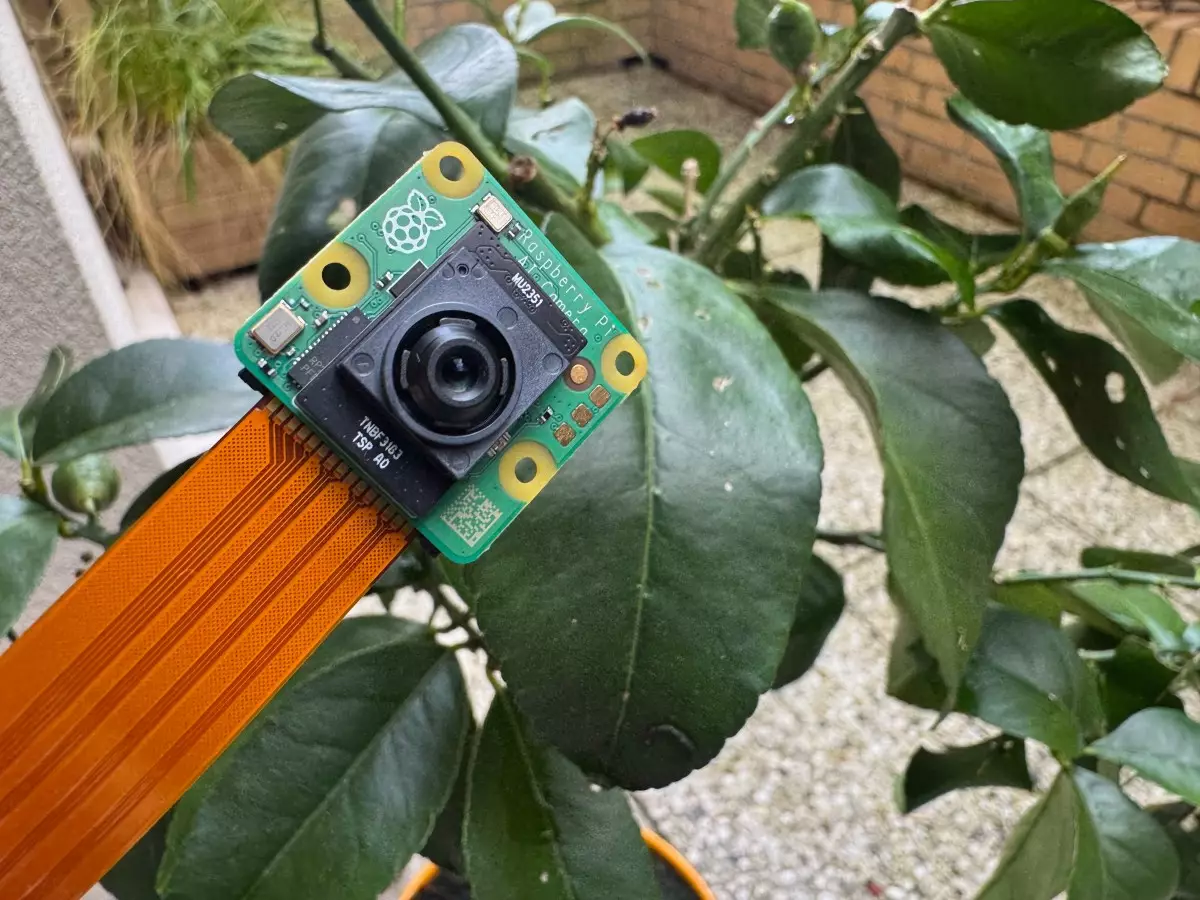Raspberry Pi continues to carve out its niche in the tech landscape with the introduction of its latest product, the Raspberry Pi AI Camera. This innovative add-on, set at a price point of $70, is designed to enhance image processing capabilities while incorporating artificial intelligence (AI) features. As we step into 2024, the integration of AI with affordable technology has become increasingly crucial for various applications, ranging from hobbyist projects to industrial solutions.
At its core, the Raspberry Pi AI Camera utilizes a sophisticated Sony IMX500 image sensor combined with the RP2040 microcontroller, an exemplary piece of hardware from the Raspberry Pi lineage. The RP2040 is engineered for efficiency and cost-effectiveness yet is equipped with sufficient SRAM to support on-board AI processing. Although this setup is unlikely to replace high-end Nvidia GPUs in advanced AI applications, it appeals to a broader audience by allowing users to implement standard neural network models directly on the camera module.
An essential feature of the AI Camera is its ability to handle image processing independently, allowing the primary Raspberry Pi unit to focus on other tasks simultaneously. This enhances performance and eliminates the need for additional hardware accelerators, streamlining the overall system for users who may not require extensive image processing power.
The AI Camera exhibits a physical resemblance to prior products from Raspberry Pi, such as the Camera Module 3, which boasts a simple 12-megapixel sensor. What sets the AI Camera apart, however, is not merely its AI capabilities but its intuitive design, which integrates seamlessly with all Raspberry Pi models. While the Camera Module 3 remains an affordable option, priced around $25, the enhanced features of the AI Camera justify the higher investment for users requiring advanced image processing.
The AI Camera comes equipped with the MobileNet-SSD model, proficient in real-time object detection. This enhancement elevates the camera’s utility, providing users with immediate feedback and interactions, especially in environments where time-sensitive decisions are crucial.
While initially designed for tech enthusiasts, Raspberry Pi has increasingly catered to commercial and industrial sectors, where innovative uses for their products can yield significant benefits. Following the company’s transition to public status, reports indicates that a staggering 72% of its sales are attributed to industrial and embedded markets. The launch of the AI Camera is likely to cater to this trend even more prominently.
The prospects for the AI Camera are extensive, ranging from smart city infrastructure to industrial automation. For example, companies could deploy this camera for monitoring parking availability in urban settings or analyzing traffic patterns through real-time data collection. In manufacturing, it could play a vital role in quality assurance processes, where products are visually inspected as they pass through production lines.
Supply Chain Reliability and Future Production Plans
Raspberry Pi has built a reputation for delivering reliable products at scale, making them an attractive choice for companies wary of supply chain disruptions — a challenge faced by many tech firms in the aftermath of the Covid-19 pandemic. The commitment to maintaining production of the AI Camera until at least January 2028 signals reassurance to potential buyers about the availability of components crucial for their projects.
The ability to source Raspberry Pi modules reliably enhances the company’s appeal within the industrial sector, where consistency and supply stability are vital to maintain productivity and minimize downtime.
The Raspberry Pi AI Camera represents more than just a technological advancement; it symbolizes a significant step forward in making AI accessible and practical across various industries. By integrating efficient processing capabilities into a compact design, Raspberry Pi is once again proving its commitment to fostering innovation while catering to an evolving marketplace. As the demand for intelligent solutions continues to rise, the AI Camera positions itself as a pivotal player in the future of automated image processing and beyond.

